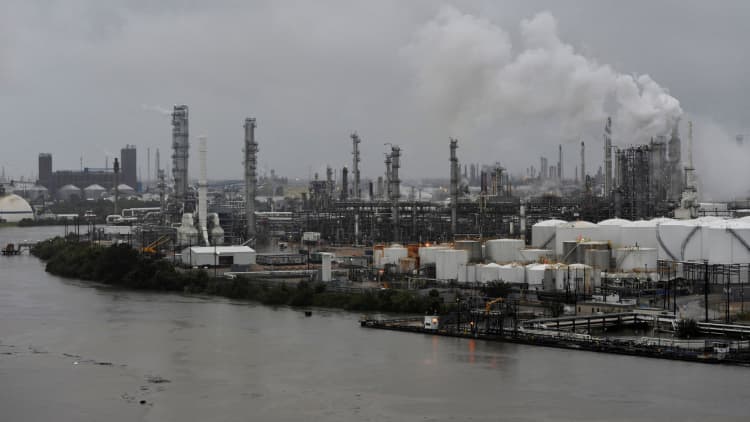
The largest U.S. refinery was shutting down completely on Wednesday morning as heavy rains from Tropical Storm Harvey flooded the 603,000 barrel-per-day (bpd) Port Arthur, Texas, plant, owner Motiva Enterprises said in a statement.
"At 5 a.m. (CDT (1000 GMT) on Wednesday, Motiva began a controlled shutdown of the Port Arthur refinery in response to increasing local flood conditions," the company said.
Motiva also said restarting the refinery would depend on flood waters receding.
A U.S. government meteorologist said rainfall totals from the Beaumont-Port Arthur, Texas, area may exceed those in the Houston area from the storm.
The Beaumont-Port Arthur area received "an incredible amount of rain overnight," said David Roth, National Oceanic and Atmospheric Administration meteorologist.
The observation point at the regional airport shows a rain total in the past 24 hours that "appears to exceed anything reported around Houston within 24 hours during Harvey's passage," Roth said.
Exxon Mobil's Beaumont refinery along with Total's and Valero Energy Corp's Port Arthur refineries were shut on Tuesday and Wednesday due to the storm.
Sources familiar with Motiva plant operations said the refinery had brought production down to about 40 percent of capacity by about 9 p.m. CDT on Tuesday in preparation for idling or completely shutting the refinery.
Motiva hoped to maintain the refinery's production at minimum if possible but was going to move units into circulation, before making a complete shutdown.
Circulation is when units are kept at operating temperatures and oil or other feedstocks circulate within the unit but no product is made. It enables the refinery to make a quicker restart.
The refinery made frequent use of its flare system, used to burn off hydrocarbons that cannot be processed normally, through the night, the sources said.
By Wednesday morning, several areas of the refinery were flooded, they said.
It was unclear what damage, if any, production units may have received due to the flooding, the sources said.

